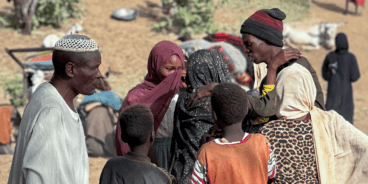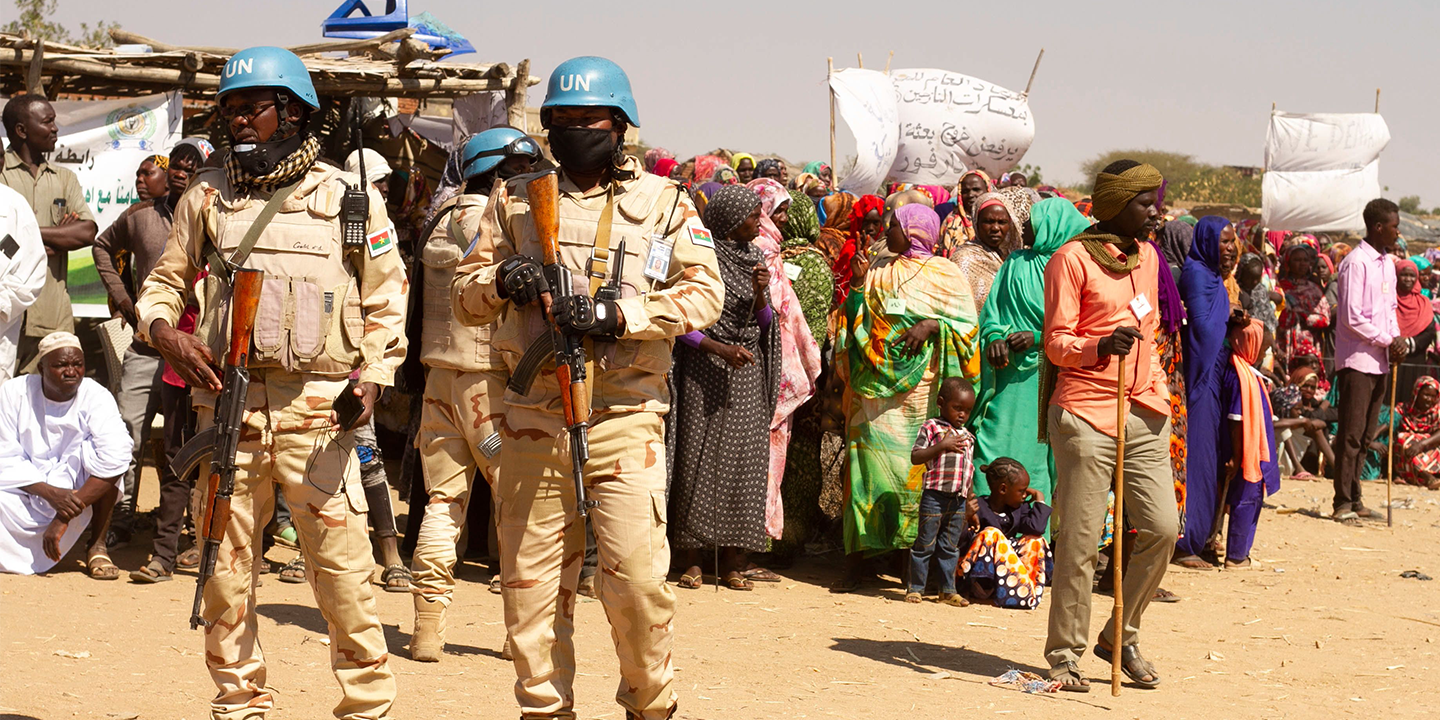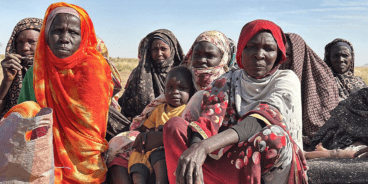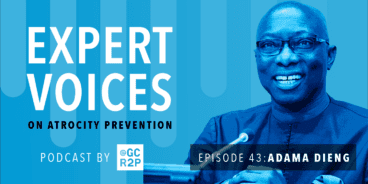

Atrocity Alert No. 236: Sudan, Ethiopia and Israel and the Occupied Palestinian Territories
Atrocity Alert is a weekly publication by the Global Centre for the Responsibility to Protect highlighting situations where populations are at risk of, or are enduring, mass atrocity crimes.
Violence flares in Darfur after UN-AU peacekeeping operation ends
At least 129 people were killed and 200 injured in Sudan after violence broke out over 16-17 January around the city of El Geneina, West Darfur. What initially started as violence between individuals from the Massalit and Arab communities quickly escalated after allied militias mobilized in response. An estimated 50,000 people have already been displaced and on Sunday, 17 January, UN Secretary-General António Guterres called upon the Sudanese authorities “to expend all efforts to de-escalate the situation and bring an end to the fighting, restore law and order, and ensure the protection of civilians.”
Sudan’s transitional government – the Sovereign Council – signed a historic peace agreement with several armed groups last October, aimed at ending almost two decades of conflict in Darfur, South Kordofan and Blue Nile states. Despite reconciliation efforts, armed groups remain active in the Darfur region and pose an ongoing threat to local populations. According to the UN Office for the Coordination of Humanitarian Affairs, incidents of inter-communal violence in Darfur doubled during the second half of 2020 as compared to 2019.
The violence this weekend took place less than a month after the UN Security Council voted to end the mandate of the UN-African Union hybrid peacekeeping operation in Darfur (UNAMID). On 31 December UNAMID conducted its last patrol and ended all mandate-related activities, including the protection of civilians. The UN’s newly established Integrated Transition Assistance Mission (UNITAMS), which is mandated to assist the government during the democratic transition, will have no uniformed personnel to protect civilians from the growing threat of militia attacks.
The government of Sudan deployed troops to the Darfur region after last weekend’s violence. “It remains to be seen whether government forces will be able to de-escalate the situation,” said Juliette Paauwe, Senior Research Analyst at the Global Centre for the Responsibility to Protect. “Some members of the Sovereign Council have a long history of directing atrocities in Darfur during the regime of former President Bashir.”
While Sudan has undergone significant political changes over the past two years, its democratic transition remains fragile. The Sovereign Council must take immediate steps to disarm armed groups, ensure justice for past atrocities, and provide effective protection to vulnerable populations in Darfur.
80+ people killed in massacre in Benishangul-Gumuz, Ethiopia
On 12 January at least 80 civilians were killed in the Metekel Zone of the Benishangul-Gumuz region of Ethiopia when an ethnic Gumuz militia burned homes and attacked Amhara and Agew civilians – including women, children and the elderly – with guns and swords. The massacre is the latest in a series of attacks in the Metekel Zone, with more than 360 civilians killed between September and December 2020. Aaron Maasho, a spokesman for the Ethiopian Human Rights Commission (EHRC), stressed, “for the umpteenth time, we call on the federal and regional authorities to scale up security in Metekel.”
On 18 January the EHRC also released a report based on assessment missions to the towns of Humera, Dansha, Bissober and Ullaga in the Tigray region, where fighting between the federal government and regional forces began on 4 November. The report provides evidence related to allegations that Amhara “Fano” militias, Amhara Special Forces, federal forces and Eritrean troops perpetrated violations that may amount to war crimes and crimes against humanity. This includes widespread looting, the destruction of homes, schools and other civilian infrastructure, and fighting in populated areas that resulted in over 100 civilians being killed. The report also highlighted Tigrayans’ fears of ethnic-based attacks and reprisals.
Meanwhile, more than 4.5 million people in Tigray – 75 percent of the region’s population – are now in need of emergency food assistance. At least 2.2 million people have been displaced by the recent war and two of the four camps hosting Eritrean refugees, Shimelba and Hitsats, have been inaccessible since November. Raising alarm about the grave threat facing Eritrean refugees in Tigray, the UN High Commissioner for Refugees, Filippo Grandi, said that he continues to receive reports of “grave and distressing human rights abuses, including killings, targeted abductions, and forced return of refugees to Eritrea.”
Sarah Hunter, Communications and Digital Media Officer at the Global Centre for the Responsibility to Protect, said that, “Prime Minister Abiy Ahmed’s government is using the delivery of aid as a weapon against its own people in Tigray, with catastrophic consequences. We call on all states with ties to Ethiopia to raise the cost of these actions by withholding military aid and financial support to the government until unrestricted humanitarian access is granted and alleged war crimes are properly investigated.”
Landmark report describes Israel as an ‘apartheid regime’
Israel’s largest human rights organization, B’Tselem, described the government of Israel as an “apartheid regime” in a report released on 12 January. According to B’Tselem, the Israeli government implements laws, practices and policies designed to advance the supremacy of Jews over Palestinians in the entire area between the Mediterranean Sea and the Jordan River. The B’Tselem report points to recent legislation and institutional practices, such as the 2018 Basic Law, the annexation of East Jerusalem, and the de-facto annexation of the West Bank through the expansion of illegal Israeli settlements.
Under international law, apartheid is used to describe a discriminatory governing system that uses laws, practices and organized violence to cement the supremacy of one ethnic group over another. The international Convention on the Suppression and Punishment of the Crime of Apartheid was adopted by the UN General Assembly in November 1973 and apartheid is also defined as a crime against humanity in the Rome Statute of the International Criminal Court.
Although numerous Palestinian activists and civil society groups have used the term “apartheid” to characterize Israel’s governing principles, this is the first time a major Israeli human rights organization has used the word in an analysis of their government’s behavior. Reflecting on the report, B’Tselem’s Executive Director, Hagai El-Ad, described Israeli government policy by saying that, “this is apartheid…There is not a single square inch in the territory Israel controls where a Palestinian and a Jew are equal.”
Israel’s apartheid policies infringe on universal human rights and are in violation of international law. The international community – especially the incoming Biden administration in the United States – must use all diplomatic tools at their disposal to compel Israel to cease all further violations of international law, including illegal settlement activity in the West Bank.
Related Content


Joint Statement: Genocide Returns to Darfur
